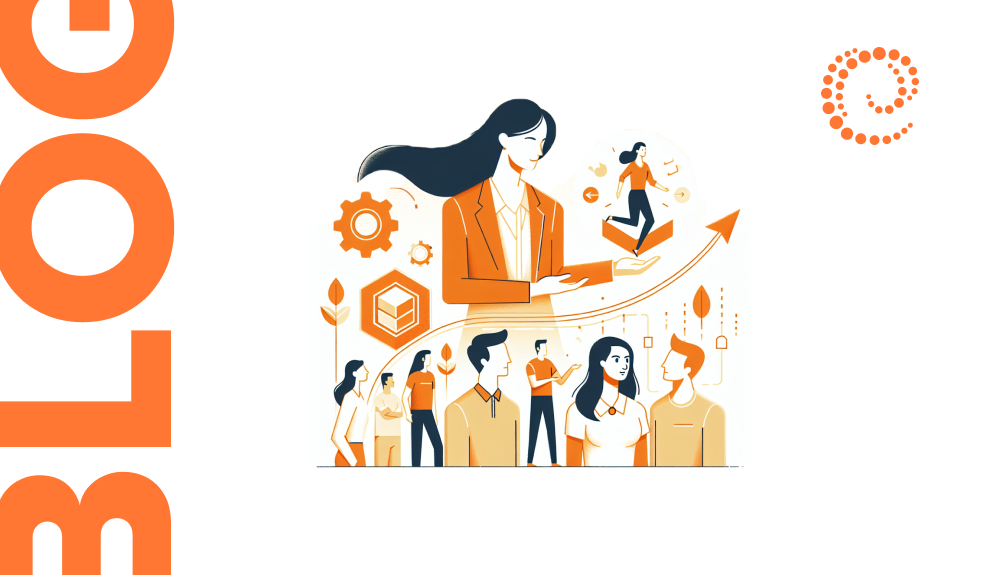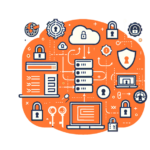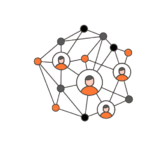
Coaching vs. Mentoring in the IT Workplace: Key Differences Explained
Kristijan Pušić | June 10th, 2024
In the world of IT, the distinction between coaching and mentoring becomes particularly significant. Coaching is goal-oriented and focused on developing specific skills. Industry experience isn’t always required to be a coach. However, the lack of experience in specific IT roles is the biggest obstacle for coaching agile IT teams. Developers pay attention only to topics strictly related to technical knowledge or sharing experiences from within the IT industry. There is just no space for coaches without experience in IT. In this article, we will explore why mentorship is a better fit for the IT industry in 2024 and how it addresses the unique challenges faced by today’s tech professionals.
Why is Mentoring a Better Fit for Real-Life IT in 2024?
Both Millennials and Gen Z, who dominate IT teams, experience the most stress, anxiety, burnout, and stigma in their day-to-day work. Again, according to Forbes, fewer than six in ten of these generations feel comfortable speaking openly with their manager about their mental health challenges. Only just over half of respondents believe their manager would know how to help them if they shared their mental health challenges. A softer approach through mentoring is much needed, as opposed to the usual coaching practices.
Coaching in IT exists in situations where few developers or managers need to raise their skill in the same way.
Coaching exists if a group of employees needs to become more skilled in some area. Maybe a new process or system is being implemented in an IT company. Those are usual situations when a coaching session could be implemented. Goals are being set and performance is being measured. But, in IT it is called Performance Management and today’s mentors are using software solutions to track performance of their developers. Mentoring has been with humankind since the beginning of time, and there is no need to reinvent the wheel. Any mentor can do performance management in 2024! Today’s software solutions and rise of AI removes the need of coaching in IT teams.
Mentorship involves someone with more relevant life experience to yours.
A mentor is someone who helps a mentee with their career development instead of pursuing concrete goals. Mentorship is about guiding the mentee in the right direction and supporting their career development. Software solutions and the rise of AI don’t affect mentoring in the same way as coaching. According to Forbes, the top 50 companies in the USA already have mentorship programs implemented, with 100% of them recognizing the value. This trend is growing, and currently, 70% of companies in the Top 500 list have mentorship programs.
Mentoring is a softer, more relationship-focused form of guidance, as opposed to the structured training approach that coaching often takes. The difference between coaching and mentoring is significant in this regard. For example, technical leads and senior developers need leadership skills as a primary soft skill. Leadership cannot be built via a structured training program alone.

In 2024, the need for effective mentorship in the IT industry is more apparent than ever.
As Millennials and Gen Z dominate the workforce, they bring with them new challenges related to stress, anxiety, and mental health like we mentioned before. Traditional coaching, with its structured and sometimes impersonal approach, often falls short in addressing these issues. Mentorship, on the other hand, provides a more empathetic and personalized form of guidance that resonates with younger generations. By fostering a supportive environment, mentors help IT professionals navigate their careers, develop essential leadership skills, and maintain their well-being. The growing trend of mentorship programs among leading companies highlights their importance and effectiveness. Embracing mentorship not only enhances individual career development but also strengthens organizational culture, making it a vital strategy for the future of your company.
FAQ
How can external competence review mitigate the distrust between management an What specific skills can a mentor provide that a coach cannot in the IT industry?d TL positions in IT projects?
A mentor in the IT industry can provide insights from personal experience or deep technical knowledge, or practical guidance on navigating career paths. There are four types of mentors in IT. Unlike coaches, mentors can share specific examples from their own careers, offer industry-specific advice, and help mentees develop a broader understanding of both technical and soft skills required for long-term success.
How do mentorship programs address mental health challenges better than coaching?
Mentorship programs offer a supportive and empathetic environment where mentees feel comfortable discussing their mental health challenges. Mentors provide personalized guidance, share coping strategies, and create a sense of belonging and trust, which is crucial for addressing mental health issues. This approach is more effective than the structured and often impersonal methods used in coaching.
What are the long-term benefits of mentoring for IT professionals?
The long-term benefits of mentoring for IT professionals include accelerated career growth, enhanced leadership and soft skills, increased job satisfaction, and better mental health. Mentorship also helps in building a strong professional network, improving job performance, and fostering a culture of continuous learning and development within organizations.
Related posts
- Navigating Challenges: Being a Good Technical Lead, part 5
 In previous articles, I have explained four essential skills for Technical Leads, they were leadership, mentorship, onboarding, and hiring.
In previous articles, I have explained four essential skills for Technical Leads, they were leadership, mentorship, onboarding, and hiring. - How to Efficiently Scale Your Startup’s Tech Stack for Maximum Growth
 When scaling your IT startup, choosing the right tech stack is crucial to ensure efficiency, flexibility, and long-term growth.
When scaling your IT startup, choosing the right tech stack is crucial to ensure efficiency, flexibility, and long-term growth. - 9 Key Measures to Protect Digital Assets and Ensure Data Integrity
 Digital transformation represents a significant shift in the way an IT company operates, impacting every aspect of the IT business from operations to customer engagement.
Digital transformation represents a significant shift in the way an IT company operates, impacting every aspect of the IT business from operations to customer engagement. - 8 Cloud Transformation Strategies for Large Enterprises
 Migrating legacy systems to the cloud is a critical move for large enterprises aiming to enhance flexibility, scalability, and efficiency of their software solutions.
Migrating legacy systems to the cloud is a critical move for large enterprises aiming to enhance flexibility, scalability, and efficiency of their software solutions.
Ready to Enrich Your Team?

Kristijan Pušić
IT consultant and Business developer
Our consultant is at your disposal from 9 AM to 5 PM CET working days from Monday to Friday for any additional questions.
Recent Posts
- How Brands Use AI to Track, Trace and Prove Their Sustainability Claims
- How AI Recognizes Waste: Smart Recycling Technologies in Action
- Rapid Hypothesis Testing for Driver Retention in Delivery Service
- How Setronica Created an AI Slack Bot, Part 3: Putting Our Bot to Work
- Building a Reliable Monthly Accrual Report: Overcoming Challenges and Implementing Solutions
